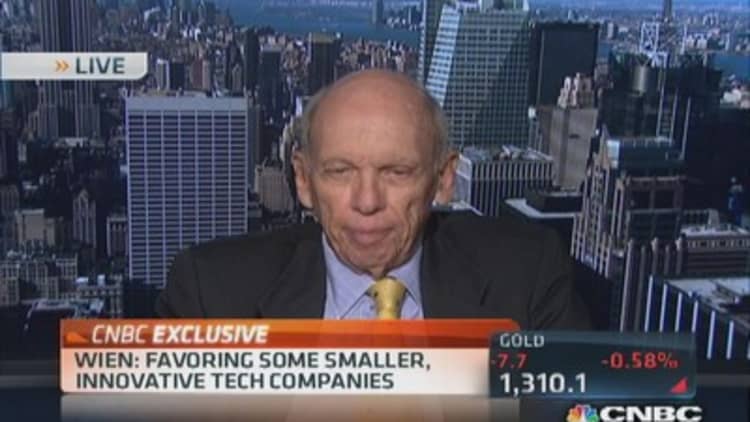
No matter how much the Federal Reserve begins dialing back asset purchases in September, veteran Wall Street strategist Byron Wien said any taper is, in effect, a form of tightening that will shake markets.
Though tightening is technically defined as raising interest rates, something the Fed said it isn't likely to do until unemployment drops to 6.5 percent, Wien argued any kind of reduction in economic stimulus will not come without repercussions.
(Read more: Trading the Fed taper: Avoid the dollar)
"The expansive economic policy of the Federal Reserve has definitely been a stimulus to the equity market. If you reduce it, you're providing less stimulus and it has the effect of some, it's a similar effect to tightening," said Wien, vice chairman of Blackstone Advisory Partners, on "Closing Bell."
After weeks of speculation, the Fed is expected to announce that it will start tapering asset purchases on Wednesday, cutting back from $85 billion per month to a range of $70 billion to $75 billion. The FOMC meeting statement will be released on Wednesday afternoon, followed by Fed Chairman Ben Bernanke's news conference.
(Read more: Questions over Fed chief a bigger issue than taper)
If the Fed decides to take no action, however, Wien thinks that would be a bad sign for the economy. It would mean the Fed doesn't think the economy is doing well, he said.
Citing sluggish economic growth and stubborn unemployment, Wien said there just aren't many reasons to think the economy has improved much. He thinks the Fed should continue its accomodative policies until things turn around.
As the third quarter wraps up, Wien said there will likely be "more disappointments than not," in terms of earnings and revenue. Any disappointing results could sour the markets, too, Wien said.
"The market has performed very well all through this year. I think it's vulnerable to a negative surprise," Wien said, adding that between the debt ceiling crisis and the uncertainty surrounding who President Barack Obama will pick to chair the Fed, "there could be a lot of surprises out there."
Wien suggests taking money off the table right now.
"Right now, I'd be careful. I think the market is a little ahead of itself," he said.
—By CNBC's Drew Sandholm. Follow him on Twitter @DrewSandholm


